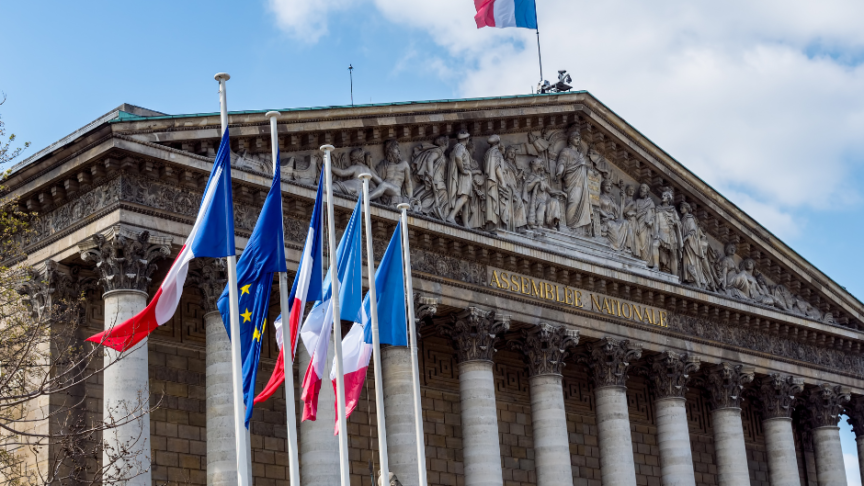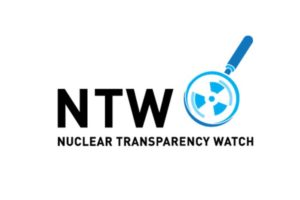Project of law on the organisation of the governance of nuclear safety and radiation protection protection to meet the challenge of revitalizing the nuclear industry.
* * *
Hearing by Mr Pascal Martin, Senator, Secretary of the French Committee on Spatial Planning and Sustainable Development
* * *
Round table discussion with representatives of the Réseau Sortir du Nucléaire, France Nature Environnement (FNE)
and Nuclear Transparency Watch (NTW).
The position below was presented at the hearing by Mr Julien Dewoghélaëre, member of the
Management Board of Nuclear Transparency Watch (NTW).
Thursday 11 January 2024 from 10:00 to 11:00, in room 261 (15 rue de Vaugirard)
______________
The European network Nuclear Transparency Watch (NTW) was set up in 2013 following a call “for vigilance on nuclear transparency” by a group of around twenty Members of the European Parliament from different political backgrounds.
The NTW network brings together more than fifty members (individuals and organisations) from twenty European countries. from twenty European countries, and promotes a citizens’ watch on nuclear safety and transparency around nuclear issues.
In the spirit of the Aarhus Convention’s principles of access to information, public participation in decision-making and access to justice in environmental the NTW network seeks to :
- Increase the contribution of civil society to the governance of nuclear activities activities (including participation in European research projects) with a view to improving safety,
- Raise awareness among political decision-makers and European society of the need for decision-making processes in nuclear matters at local, national and European levels.
Nuclear Transparency Watch’s activities cover all aspects of the nuclear cycle: issues relating to nuclear safety and security, problems associated with the ageing and life extension of nuclear facilities, new build and the decommissioning of old facilities, radioactive waste management, emergency preparedness and nuclear safety.
In particular, the network is involved in European research projects on the above-mentioned subjects, it is also involved in partnerships with the European Commission on transparency in the nuclear sector in Europe (BEPPER report) and access to information and public participation (Aarhus Convention & Nuclear – ACN multi-stakeholder round table process).
In view of its activities and missions, NTW has closely followed the project to the reform of the French nuclear safety expertise and control system, and more specifically the planned merger of ASN and IRSN. On 16 March 2023, the NTW network wrote, with 12 European associations and 23 MEPs co-signing, an open letter to the French Minister for Energy Transition, Agnès Pannier-Runacher, to express its concern at the urgency with which the reform was being carried out and underlying the fact that the reform was not based on an impact study nor on any dialogue with stakeholders.
NTW also responded favourably to OPECST’s request for a hearing in June 2023 to give the NTW network’s opinion on the consequences of a possible reorganisation of ASN and IRSN. Its position on this issue revolved around four points that underlined the importance of preserving the qualities of the current French system:
- The exemplary nature of the French control system, recognised as a model at European level and the importance of strictly independent expert assessment institutions,
- The ability of the French control and expertise system to maintain a link between and expertise, as well as a pluralism of expertise that guarantees the quality of quality,
- Maintaining a high level of commitment to exchanges and research conducted at European level on the various technical and socio-technical issues related the nuclear sector,
- Maintaining the development of a shared safety culture and openness to civil society in the spirit of the Aarhus Convention.
Since this hearing, France has passed a law on the acceleration of procedures relating to the construction of new nuclear facilities (22 June 2023) and the OPECST report has been made public. Following on from this, a bill on the organisation of the governance of nuclear safety and radiation protection to meet the challenge of relaunching the nuclear industry was tabled in December 2023 and is currently being examined by the Commission for Spatial Planning and Sustainable Development.
In this context, NTW is today responding to the Committee’s request for a hearing to give the NTW network’s opinion on this bill. Its position on this issue revolves around four points which, in its view, highlight the risks of weakening the nuclear safety nuclear safety system presented by the bill in its current form:
Axis 1 – A decline in transparency, undermining the safety system and public trust public confidence
Contrary to the stated objectives of enhanced safety and transparency, some of the provisions of the bill seem to us to lead to a regression in this area in comparison compared with the current system.
Regulating the publication of expert opinions by means of provisions in the internal regulations of the new entity combining the functions of the ASN and the IRSN does not provide the necessary transparency. of the new entity combining the functions of the ASN and the IRSN does not provide the same the same guarantee as the current legal provision prescribing the publication of IRSN notices.
In the same way, referring the question of the separation of the expert appraisal and the separation of the appraisal and investigation processes is a step backwards in terms of transparency. On the contrary, this crucial issue should be at the heart of parliamentary discussions, because it raises the question of the guarantees of the independence of the from decision-making on nuclear safety. In the current system, which is seen in European research circles as a model to follow, the presence of two separate the presence of two separate institutions guarantees independence from external pressures and an internal requirement for rigour in the production of opinions. In the new system prescribed by the bill, it is to be feared that positive opinions will be published and the unfavourable opinions “forgotten”, reducing the quality of the system’s safety.
This reduction in transparency and weakening of guarantees of independence threaten public confidence in the safety system. At Moreover, the opposition of a large number of IRSN staff reinforces the risk of weakening the safety system at a time when, on the contrary, it needs to be strengthened since the stated objectives are to increase the number of nuclear installations.
Axis 2 – Risks associated with the decline in R&D in safety and radiation protection
The quality of the current system is based in particular on the development of high-quality research to support expert assessments, which has been the fruit of twenty years of effort within IRSN to guarantee the quality of scientific and technical risk assessments. This high-quality is carried out at all levels (local, national, European and international). If the merger goes ahead, it will be essential to ensure that all research activities are transferred to the future ASNR. NTW has seen the driving role played by the IRSN in European research activities (particularly around the issue of radioactive waste management) and a withdrawal of the new authority from these research activities would send a very bad signal to the partners within the EU.
In addition, certain elements, such as the drafting of decrees preparing for the transfer of certain IRSN projects to the CEA, or the provisions of Articles 5 and 7 of the bill, which transfer IRSN’s assets, rights and obligations in the area of research to the CEA, present a significant risk to the autonomy of the expert assessment function (which needs independent research within it) and presage a return to the much-criticized situation that led to the creation of IRSN.
Axis 3 – Keeping expertise open to society
Over the past twenty years, IRSN has also developed initiatives to open up to society, giving citizens access to information and increasing their skills in safety and radiation protection, thereby contributing to the development of a shared safety culture.
For NTW, the bill must not be a step backwards and should include guarantees to preserve the innovative actions developed in this area: technical dialogues, inclusion of civil society in the preparation of opinions (example of the actions carried out as part of the fourth periodic review of the 900 Megawatt reactors in the French nuclear fleet), opening up IRSN research to civil society (Research Steering Committee) in order in particular to ensure that research also responds to society’s questions. In addition to reiterating the importance of this public participation, the bill makes no mention of concrete measures to ensure that these actions are maintained.
Axis 4 – A rushed project that is not compatible with safety issues
In March 2023, NTW, along with others, expressed its concern about the hasty form that this project to reform the governance of the safety system was taking. While the OPESCT report was a first step towards a necessary analysis of the benefits and risks of such a reform, it is clearly no substitute for a complete and contradictory evaluation of the existing system. This report does not that the current system is unsustainable, nor on the consequences of the merger. The current French organisation works well and has won the confidence of the French people, which was not the case in the past. Moreover, it is a model that is seen as positive abroad as positive.
For NTW, while rethinking the organisation of the safety system is understandable, the current project seems to be rushed, with a high risk of undermining the existing system at a time when the challenges ahead require stability and confidence. The date planned for the entry into force, 1 January 2025, leaves little time for the Senate and the National Assembly to consider the consequences of implementing the bill with all the stakeholders concerned.


You must be logged in to post a comment.